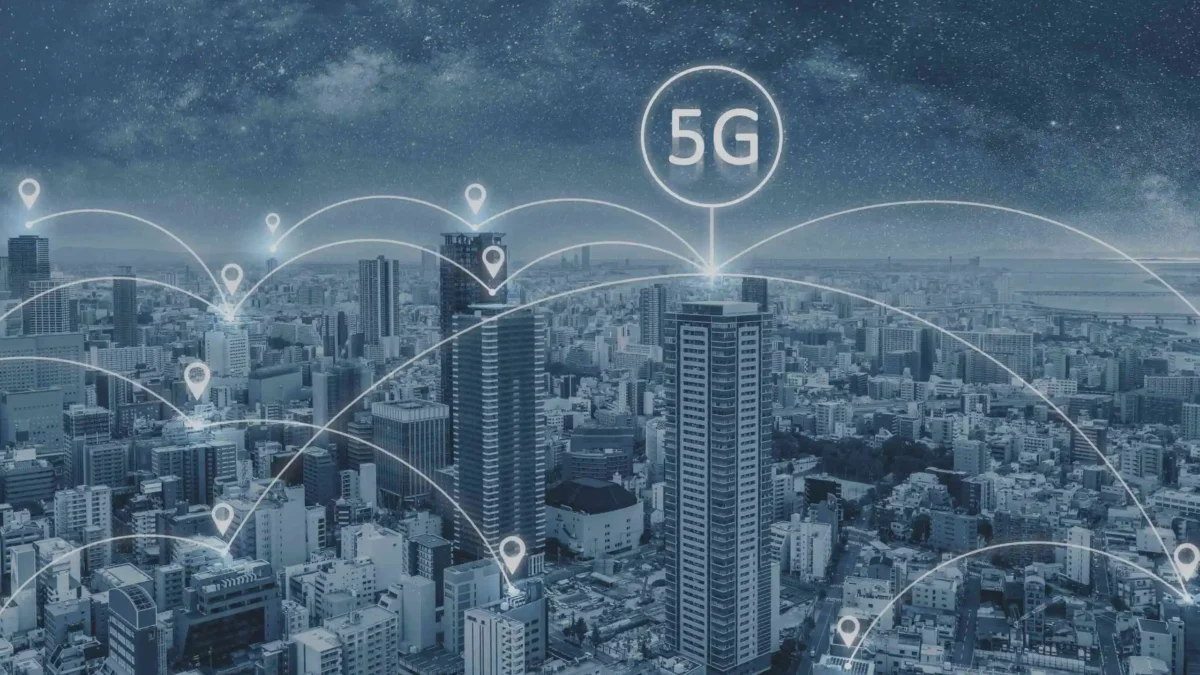5G technology transforms daily life by enhancing connectivity and enabling faster internet speeds. It revolutionizes communication, healthcare, and smart cities.
5G technology, the fifth generation of wireless networks, promises to redefine how we interact with the world. Offering speeds up to 100 times faster than 4G, it facilitates seamless streaming, real-time data transfer, and instant communication. This leap in technology empowers innovations in various sectors, such as telemedicine, autonomous vehicles, and IoT (Internet of Things) devices.
With ultra-low latency, 5G ensures more reliable and responsive networks, crucial for critical applications like remote surgeries and smart infrastructure. As 5G networks expand, they will significantly elevate efficiency, convenience, and connectivity in everyday life.
Speed And Connectivity
5G technology makes internet super fast. You can download movies in seconds. Streaming videos becomes smooth and quick. No more waiting for pages to load. 5G brings lightning speed to your mobile devices. This means better experiences for games and apps. Superfast internet helps everyone stay connected.
5G works well in crowded places. You get strong signals in stadiums and concerts. Even at busy airports, your internet will be fast. Enhanced connectivity means no dropped calls. You can share photos and videos instantly. Crowded areas will not slow down your internet anymore. 5G makes sure everyone stays connected.
Transforming Communication
5G technology makes mobile phones much faster. Downloads happen in seconds. Video calls are clearer. The internet connection is more stable. People can use virtual reality and augmented reality on their phones. This makes gaming and learning more fun. Businesses can run better apps. This helps workers be more productive.
Social interactions become richer with 5G. Friends can share high-quality videos instantly. Live-streaming events are smoother. This makes people feel closer. Online communities grow stronger. People can connect more easily with loved ones. The technology supports new forms of social media. This changes how we interact daily.
Smart Cities And Iot
5G technology helps build smart cities. It makes infrastructure smarter. Streetlights can adjust brightness based on activity. This saves energy. Traffic signals can adapt to real-time traffic. This reduces congestion. Smart grids can monitor and manage power use. This prevents blackouts.
5G boosts the power of IoT devices. It allows faster data transmission. Smart homes benefit greatly. Devices can communicate instantly. This means better security and convenience. Wearables like smartwatches perform better. They provide real-time health data.
Advancements In Healthcare
5G technology makes telemedicine faster. Doctors can see patients online. This helps people in far places. Quick video calls help in emergencies. Remote diagnostics are more accurate. Doctors can use high-quality images. This helps them find problems early. Less time is wasted traveling to clinics.
Wearable health monitors track our health. Devices like smartwatches send data quickly. 5G networks make this instant. Doctors get real-time data. They can check heart rates and other signs. Alerts are sent if something is wrong. This helps in giving quick care. Patients feel safer every day.
Impact On Entertainment
5G technology makes streaming faster. Videos load without buffering. Gamers experience less lag. This makes online games more fun. High-definition content streams smoothly. Download speeds improve greatly. This means less waiting time.
5G enhances virtual and augmented reality. Experiences become more immersive. VR headsets work better. AR apps respond faster. This improves educational tools. It also boosts gaming experiences. Real-time interactions feel more real.
Autonomous Vehicles And Transportation
5G technology accelerates the advancement of autonomous vehicles, enhancing real-time data processing and communication. This revolutionizes transportation, making it safer and more efficient.
Self-driving Cars Connectivity
5G technology helps self-driving cars. They can talk to each other fast. This makes them safer. They can avoid crashes better. Cars can also talk to traffic lights. They know when to stop and go. This helps traffic move smoothly.
Smarter Public Transit Systems
Public buses and trains use 5G too. They can send data fast. This helps them run on time. Passengers get real-time updates. They know when the next bus is coming. 5G also helps with route planning. It finds the best routes quickly. This makes travel faster for everyone.
Challenges And Concerns
5G technology can create new security risks. More devices will connect to the internet. This makes it easier for hackers to attack. Privacy concerns also rise with 5G. More data will be collected from users. Companies must protect this data.
Building the infrastructure for 5G is expensive. Many new towers and antennas are needed. This can cost billions of dollars. Maintaining the network is also costly. Smaller towns may face delays in getting 5G. Big cities will likely get it first.
Future Prospects
The arrival of 5G technology creates new jobs. Many people will need to learn new skills. Jobs in tech and communication will grow. Engineers and developers will be in high demand. Healthcare will see new roles due to telemedicine. Education will change with online learning options. Job markets will adapt to these changes.
5G technology boosts the economy. Businesses can be more efficient. Faster internet helps companies grow. Smart cities can save money. Automation will reduce costs. Consumers will have better services. This growth will create wealth and jobs. Global trade will increase as well. Economies will become more connected.
5G technology is revolutionizing daily life. It enhances connectivity, boosts productivity, and supports smart cities. Embracing 5G leads to faster data speeds and innovative applications. As 5G continues to expand, it promises a more connected and efficient future. Stay updated to fully benefit from this technological advancement.
Unlock Full Article
Watch a quick video to get instant access.


Social Media